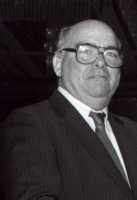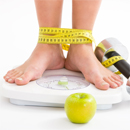How to Lose Weight On A Gluten Free Diet
Many celiacs lose weight before they are diagnosed; indeed it is often one of the reasons people go to their doctors in the first place.
Once on a gluten-free diet the symptoms disappear, and as a result of better absorption or simply eating more, some people gain too much weight.
Losing weight should be based on eating sensibly rather than lurching from one diet to another. Be wary of low carbohydrate diets, as high protein diets can cause acidosis, which in turn can lead to calcium being lost from the bones.
You should always check the ingredients of any low calorie / low fat / low carbohydrate products as they may use ingredients containing gluten to thicken or stabilize the product. These are often wheat based.
Moderation is the key. Don’t deprive yourself but be honest with yourself. Snacking and raiding the fridge can add huge amounts of empty calories.
Consider the relationship you have with food – if you are using it to compensate for feeling unhappy it is better to deal with the underlying problem rather than use food. You end up with both the unhappiness and a weight problem.
It is quite useful to keep a food diary for a week before attempting to change your diet. ( This refers to weight loss only, you must stick to your gluten-free diet at all times.) Look for empty calories, hidden fats and sugar. How much alcohol are you drinking? Be absolutely honest. Cut down on convenience foods as they are usually high in fat, sugar and salt.
The best way to lose weight is to:
Eat regular meals, particularly breakfast.
Consider your portion control, and use a smaller plate.
Don’t feel you have to eat everything on your plate. Always stop eating when you are full!
Eat lots of fruit and vegetables – at least 5 portions a day,
Fill up on vegetables – if it is green and leafy or red you can eat as much as you like
Eat potatoes, yams, sweet potatoes and parsnips in moderation
The way you cook food is important -
Remember frying, roasting or putting loads of butter on vegetables adds lots of fat and calories – beware
Cut out the snacks – they are often very high in fat and or sugar
Be sensible with carbohydrates –chose wholemeal rather than white bread, rice and pasta as it takes more calories for the body to digest, you feel full for longer and they have a higher level of vitamins and minerals. Eat them in moderation
Trim fat off meat and don’t eat the skin of fish or poultry – there is a high concentration of fat just under the skin
Beware hidden calories in drinks / snacks – a single tin of non- diet fizzy drink contains the equivalent of 7 teaspoonsfull of sugar
Crisps / biscuits / cakes / chocolate / sweets should be a treat they are laden with fat, salt and sugar
Alcohol is high in calories; approximately 80 calories for a small glass of wine. (1 unit).
Cut your intake of salt – sodium can increase blood pressure.
Eating and weight are like the see-saw at the park. One end represents the calories you take in – what you eat. The other end is the calories you use in your daily activities including exercise.
If you eat more calories than you use you will put on weight. The seesaw will go up – as will your weight.
If you eat fewer calories than you use you will lose weight. The seesaw will go down – as will your weight.
It is vital that you follow a sensible balanced diet when you are trying to lose weight, ensuring you get enough vitamins and minerals if you want to remain healthy.
Drink plenty of water – it will purify the system and help to make you feel full.
Gina Gardiner author of “Live Well Eat Well With Celiac Disease” writes from first hand experience of being a celiac. For more information go to http://www.celiacliving.com
Works as a professional life coach working with people developing their leadership skills, preparing people for promotion and supporting their ongoing development once in post. For more information contact [email protected]
-
Don’t Let Me Down by The Chainsmokers Ft. Daya Interpretation
-
The Top 10 Tips to Weight Loss, Health, and Fitness-Tip #9
-
Weight Loss Surgery – The Benefits and Pitfalls You Should Be Aware of
-
The Porcupine Diet – Acupuncture For Weight Loss
-
5 Easy Weight Loss Tips You Can Use Right Now
-
The Best Weight Loss Exercise Is
- DON'T MISS
- Prepare Your Mind To Lose Weight
- How to Lose Belly Fat with Dairy Products Faster
- Lose the Excuses to Lose that Weight
- The Real Reason Why You Are Fat
- Living With An Obese Partner
- Holiday Weight Loss – Thanksgiving and Christmas Don’t Have To Ruin Your New Year
- 10 Hot Tips to Lose Weight Without Dieting: Try These 10 Tips and Start Losing Weight Tomorrow!
- Obesity: Did You Know?
- How To Eat To Lose Weight
- Food-Combining Diets




